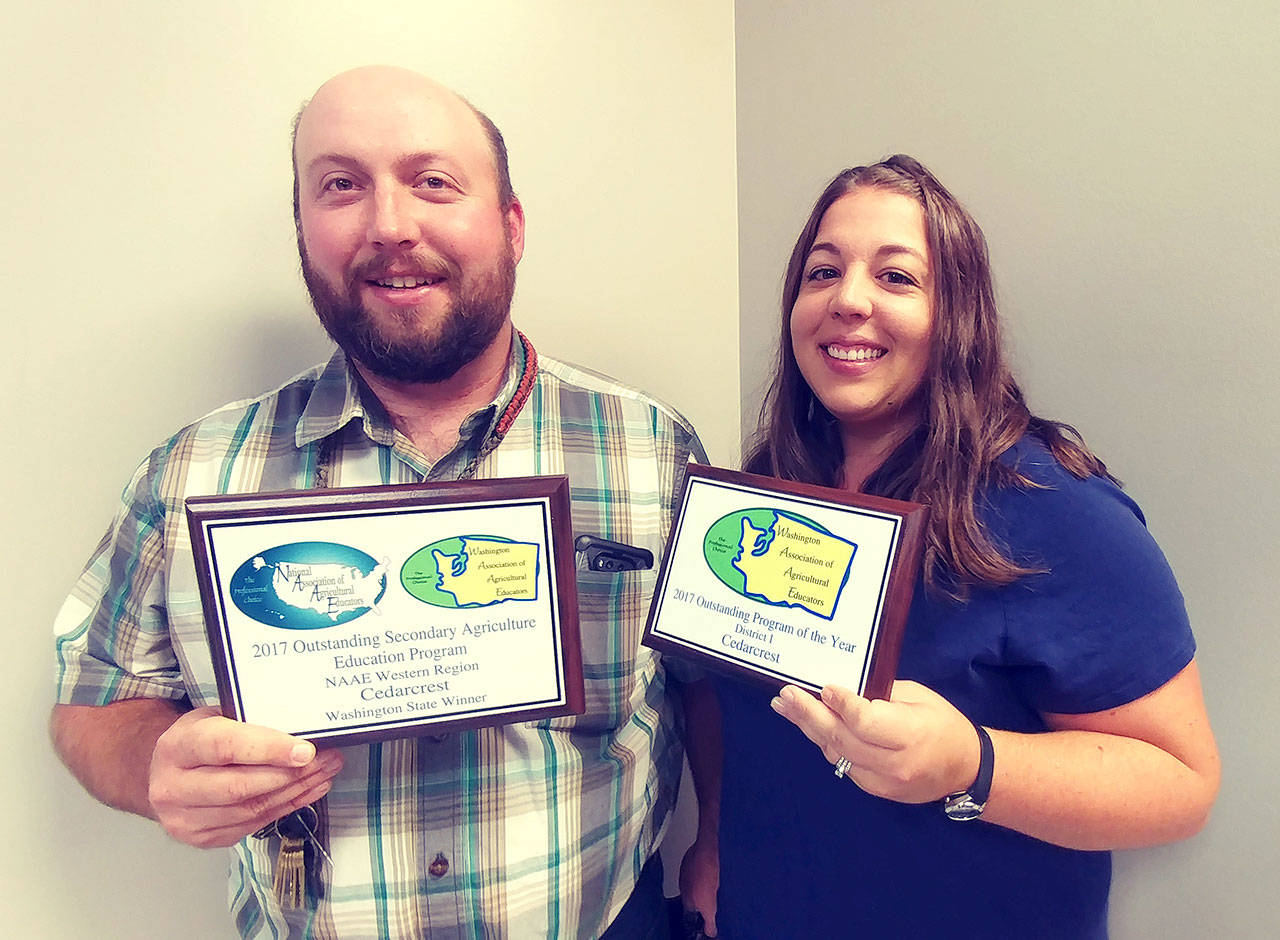A little over a month from now, the staff and students of Cedarcrest High School’s agriculture education program will find out how they compare with award-winning agriculture programs from throughout the western U.S. They’re already winners, though, since June, when they were named the National Association of Agricultural Educators High School Agricultural Program of the Year.
Teacher Sarah Thomas said winning for the state is a huge accomplishment in itself. Nominated in February for District 1 by the Mount Baker agriculture program, the Cedarcrest program is surrounded by much larger programs.
“We’re at the bottom of District 1, which goes all the way up to Ferndale,” she said. “I think it’s a well-deserved award… We are at the same time, a young program.”
The 16 year-old program was launched by now-retired teacher Les Collins. Sarah Thomas has been involved with the program for 11 years and Seth Thomas since Collins’ retirement three years ago.
Today it includes classes in animal sciences, floral design (which includes art credit for the students), horticulture, greenhouse operations, wood shop, metal shop, turfgrass management, small engines and agriculture science, a class that Sarah Thomas described as “Basically it’s an intro to agriculture. They learn a huge variety from dairy foods to soils, public speaking, leadership… Each agriculture class has to teach a component of leadership.”
Much of that leadership comes from the hand-in-hand relationship of agriculture programs with the National FFA Organization, previously known as Future Farmers of America. To be in FFA, students must take agriculture classes; and every agriculture education program is required to have an active FFA chapter.
What isn’t required, though is for anyone to live on a farm.
“We have 70 paid (FFA) members and honestly I would say probably 80 percent of those kids live right in town,” she said. “They don’t come from farms… These kids are at least one or two generations off of the farm, but they really are finding connections to agriculture interesting.”
One of her most popular classes, animal sciences, has “blown up” since it was first offered in 2013.
“We’re just learning how animals work… and I have 37 kids in that class. Those classes are so full, it’s definitely a piece of the puzzle we were missing.”
Student connections are just one of the award criteria. Others include how well staff involve students in experiential learning projects such as the Evergreen State Fair; participation in and growth of student organizations such as FFA and community partnerships with agricultural or other supporting organizations.
The partnerships go both ways, though, with support to and from the program in the community, says Carnation City Councilwoman and Cedarcrest parent Kim Lisk.
In her letter of reference to the award committee, she wrote “The Agriculture department at Cedarcrest has played a huge role in improving the quality of our community in Carnation and Duvall…. Some of their contributions include hanging plants within each city as well as donat(ing) time to weed the city common areas. They have teamed with the Carnation Public Works department while spending two weekends doing a clean-up project in the common areas and city parks.”
Professional growth of the teaching staff is also an important component and Sarah Thomas noted that the Riverview School District has been very supportive of the ag staff’s development.
“How do we stay on the top of the learning curve for the students? That’s really important to us, that’s why we’re doing more with the hydroponics, grow lights, propagation, and more sustainability, because the students are really starting to get interested in sustainable agriculture and at-home gardening and growing their own food.”
The team’s award application is now in a competition with programs from Idaho, Oregon, Montana, California, Utah, Hawaii and Alaska to determine a regional winner. Sarah Thomas said they should have the results of that competition in early December.



